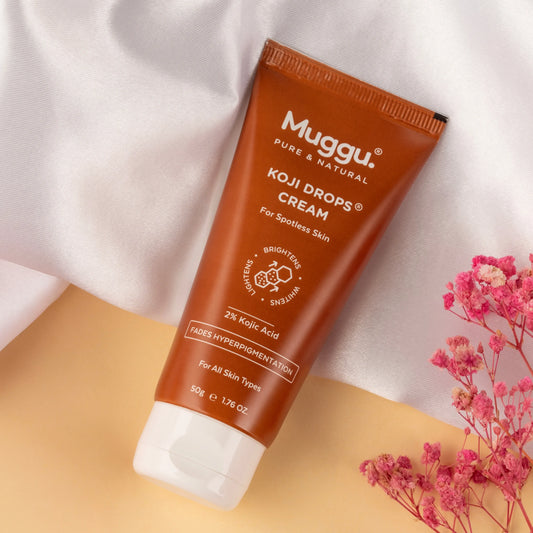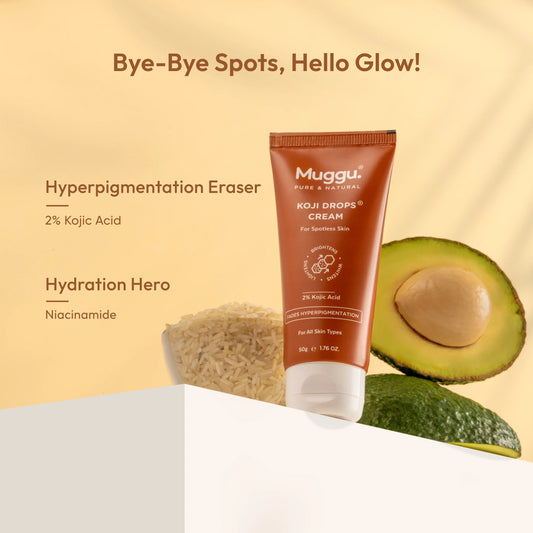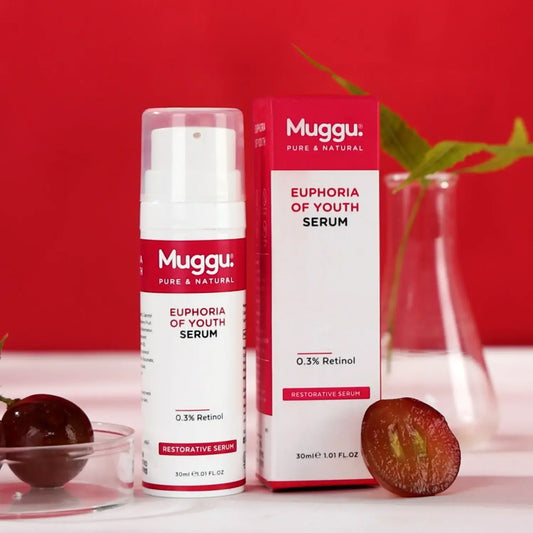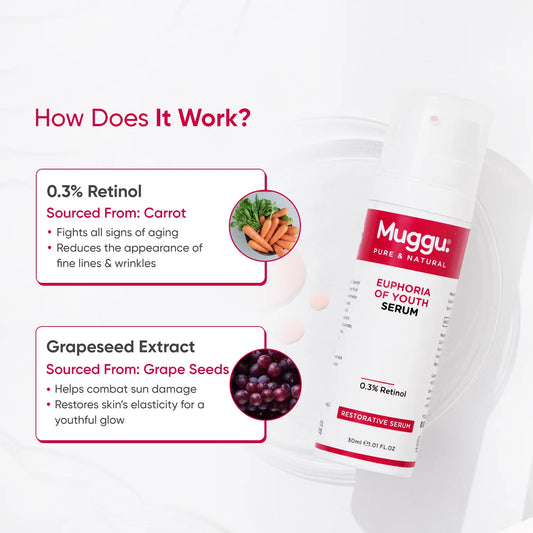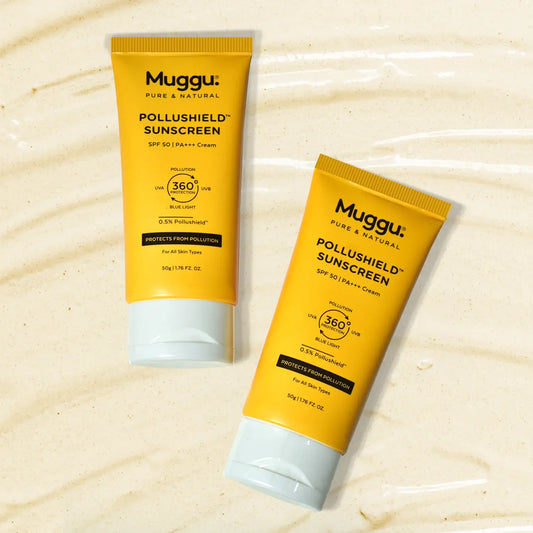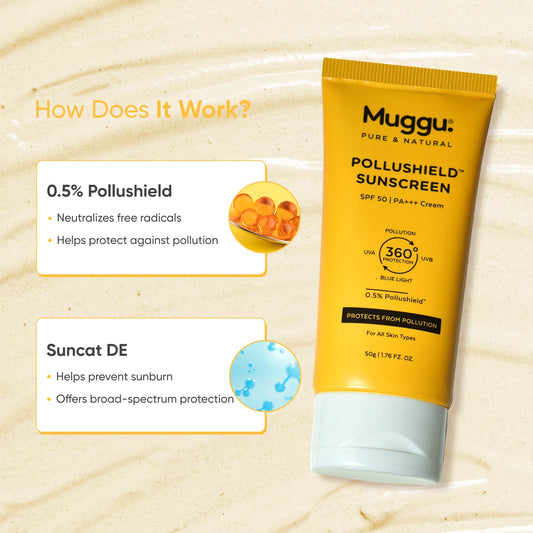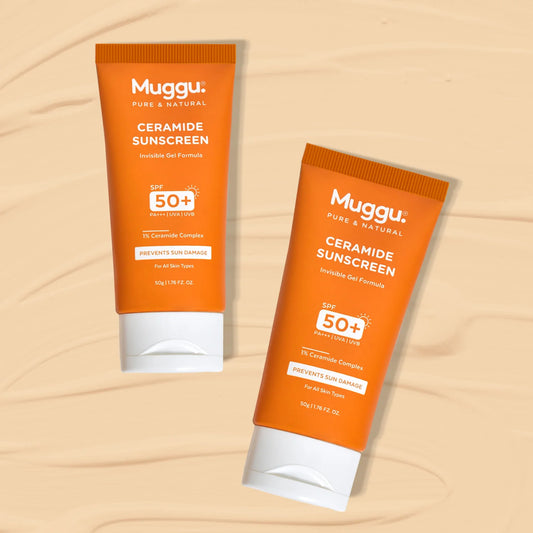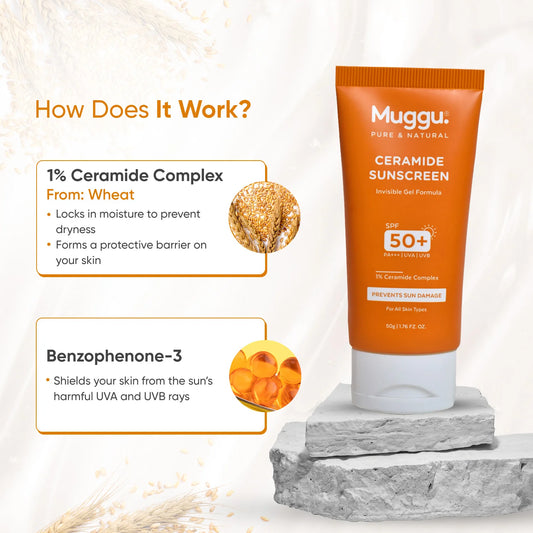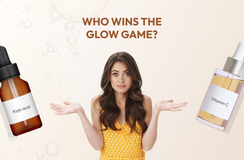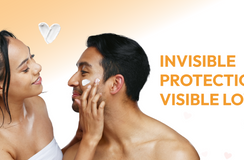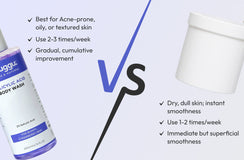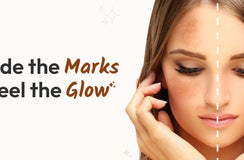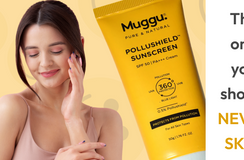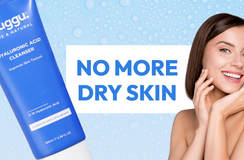Hi, everyone! Protecting your skin from the harmful effects of the sun's ultraviolet (UV) rays is essential for maintaining healthy, youthful-looking skin. To achieve this, many individuals turn to sunscreen as a vital component of their skincare routine. However, not all sunscreens are created equal, and the differences between physical and chemical sunscreens can impact their effectiveness and suitability for various skin types.
Here, let's examine the differences between physical and chemical sunscreen SPF 50 formulations, helping you decide when to select the best sunscreen for your needs.
What is Sunscreen SPF 50?
Sunscreen lotion SPF 50 refers to a product with a sun protection factor (SPF) 50. The sunscreen can shield up to 98% of the sun's harmful UVB rays, making it an amazing choice for those seeking robust protection from sun damage.
The SPF rating measures how effectively a sunscreen can shield your skin from sunburn-causing UVB rays. A higher SPF number, such as SPF 50, indicates stronger sun protection than lower SPF formulas.
Physical vs. Chemical Sunscreens
The primary distinction between physical and chemical sunscreens is how they interact with and protect the skin from UV radiation.
Physical Sunscreens
Physical sunscreens, or mineral sunscreens, contain active ingredients such as zinc oxide or titanium dioxide. These natural minerals act as a physical barrier, reflecting and scattering UV rays away from the skin. Those with sensitive skin often prefer physical sunscreens SPF 50, as they tend to be less irritating and less likely to cause reactions.
Chemical Sunscreens
Chemical sunscreens contain organic compounds like oxybenzone, avobenzone, or octocrylene as their active ingredients. These chemicals work by absorbing UV radiation and converting it into a small amount of heat, which is then released from the skin. Chemical sunscreen SPF 50 formulas generally have a lighter, more cosmetically appealing texture than physical sunscreens.
Key Differences
-
Application and Absorption
Physical sunscreens sit on the skin's surface, forming a protective barrier, while chemical sunscreens are absorbed into the skin and work from within.
-
Onset of Protection
Physical sunscreens provide immediate protection upon application, whereas chemical sunscreens demand approximately 20 minutes to be fully effective.
-
Broad-Spectrum Coverage
Both physical and chemical sunscreens can provide broad-spectrum protection to keep your skin shielded from UVA and UVB rays. However, some chemical sunscreen formulas may require a combination of active ingredients to achieve full broad-spectrum coverage.
-
Skin Sensitivity
Physical sunscreens are generally less irritating and better suited for sensitive skin or conditions like rosacea, as they are less likely to cause reactions or irritation.
-
Environmental Impact
A few chemical sunscreen ingredients, like oxybenzone, have been connected to potential environmental and coral reef damage. Physical sunscreens, on the other hand, are considered more environmentally friendly.
Choosing the Right Sunscreen SPF 50
When selecting a sunscreen SPF 50, it's essential to consider your skin type, sun exposure needs, and personal preferences. Here are some factors to keep in mind:
-
Skin Type
If you have sensitive skin or are prone to breakouts, a physical sunscreen may be the better choice. Sunscreen SPF 50 for oily skin or acne-prone skin, a lightweight, non-comedogenic chemical sunscreen lotion SPF 50 could be a good option.
-
Sun Exposure
If you'll spend longer periods in the sun, such as at the beach or during outdoor activities, a high-SPF 50 sunscreen with robust broad-spectrum protection is recommended.
-
Ease of Application
Some individuals may prefer the smooth, easy-to-apply texture of chemical sunscreen SPF 50 formulas. In contrast, others may find the thicker, more noticeable application of physical sunscreens more suitable.
-
Personal Preference
Ultimately, the best sunscreen SPF 50, is the one you will use consistently and correctly. Experiment with different formulas to find the one that provides the protection you need while complementing your skincare routine and personal preferences.
Recommended Products
Pollushield Sunscreen
Experience advanced sun protection with Pollushield Sunscreen SPF 50, offered by Muggu Skincare. Our cutting-edge formula protects against harmful UV rays, blue light, and environmental pollutants, offering a protective barrier against urban stressors.
Our SPF 50 sunscreen for oily skin is ideal with its lightweight, non-greasy texture. It ensures comfortable and effective daily defense against sun and pollution, preventing premature aging and sun damage.
Ceramide Sunscreen
Ceramide Sunscreen offered by Muggu Skincare that features an invisible gel formula that combines sun protection with skincare. It provides broad-spectrum UV defense while incorporating ceramides to strengthen the skin's barrier.
The lightweight, non-greasy gel ensures smooth application, nourishing and maintaining moisture balance for protected, radiant, and comfortably hydrated skin all day.
Ingredients
-
Pollushield
It provides broad protection against UVA, UVB, blue light, and pollutants. It also shields skin from smog and airborne particles, enhancing sun protection and acting as a barrier against environmental aggressors.
-
Suncat DE
A photostable sunscreen ingredient that absorbs and dissipates UV radiation, preventing sunburn and long-term damage. Compatible with other agents, it offers broad-spectrum, reliable UV protection.
-
Ceramides
Essential lipids that mimic the skin's natural structure, strengthening its barrier. Ceramides retain moisture, enhance elasticity, and protect against environmental stressors, promoting a resilient and healthy complexion by reducing fine lines.
-
Benzophenone-3 (Oxybenzone)
A UV filter in sunscreens absorbs UVB and short UVA rays to prevent sunburn and damage. This key ingredient enhances our gel sunscreen's efficacy, protecting skin from harmful UV radiation.
Benefits Of Our Sunscreens
Experience unparalleled protection from sun damage, blue light, and environmental pollutants with our Pollushield Sunscreen SPF 50.
-
Offers UVA/UVB Protection
It offers protection against harmful UVA & UVB rays, shielding your skin from sun damage and minimizing the risk of long-term harm caused by prolonged sun exposure.
-
Fights Pollution
It forms a defensive shield on your skin, preventing pollutants from penetrating it and maintaining a healthier complexion.
-
Offers Blue Light Protection
It protects against blue light, shielding your skin from the potential damage associated with extended exposure to digital screens and electronic devices.
-
Prevents Sunburn
It is a reliable barrier against the sun's intense rays, preventing sunburn and ensuring your skin stays safe during outdoor activities.
-
Controls Oily Skin
Sunscreen SPF 50 for oily skin is a versatile product that offers protection and hydration. Its high SPF value ensures robust sun protection, while its lotion formulation provides moisture to the skin, making it suitable for daily use.
-
Fights Wrinkles
It helps maintain skin elasticity, preventing premature signs of aging like fine lines & wrinkles to offer you a youthful complexion.
-
Improves Skin Texture
It enhances overall skin texture, providing a smoother, more even surface for a flawless appearance.
Wrap Up
Either you choose a physical or chemical sunscreen SPF 50; the most important factor is ensuring that you apply a sufficient amount and reapply it regularly to maintain optimal sun protection. By understanding the differences between these two sunscreen types, you can decide and find the best SPF 50 sunscreen for face, a solution for your needs.
By incorporating a high-quality SPF 50 sunscreen into your daily skincare regimen, you can safeguard your skin from the risks of UV radiation. Enjoy the benefits of healthy, radiant skin for years to come.
